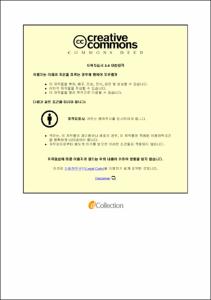조기진통 임부의 불안과 스마트폰 의존도가 수면의 질에 미치는 영향
- Issued Date
- 2020-02
- Abstract
- This study aimed to investigate the effects of anxiety and smartphone dependency on sleep quality in pregnant women with preterm labor. The subjects of this study were 111 pregnant women who were between 20 and 37 weeks of gestation with preterm labor. The data were collected from October 1, 2018, to October 25, 2019. The tools used in this study were the modified Korean version of the State-Trait Anxiety Inventory Form Y modified by Han Duk-woong et al. (1996) for the assessment of anxiety, Smartphone Addiction Proneness Scale developed by Kim Dong-il et al. (2012) for the assessment of smartphone dependency, and Korean Sleep Scale A developed by Oh Jin-ju et al. (1998) for the assessment of sleep quality. Collected data were analyzed using frequency, percentage, standard deviations, t-test, Pearson's correlation coefficient, and hierarchical multiple regression. In this study, the mean scores for anxiety, smartphone dependency, and sleep quality in the subjects were 43.43 out of 80, 63.5 out of 60, and 38.43 out of 60, respectively. General and obstetric characteristics of the subjects that resulted in significant differences in sleep quality were as follows: sleep time (t=-2.62, p=.010), preterm birth experience (t=-2.06, p=.042), pregnancy method (t=2.54, p=.012), and bowel movement (t=-2.24, p=.026). Analysis of correlations between the subjects' sleep quality and their anxiety and their sleep quality and smartphone dependency have shown significant negative correlations between sleep quality and both anxiety (r=-.23, p=.013) and smartphone dependency (r=-.24, p=.010). The subjects' preterm birth experience, pregnancy method, bowel movement, and smartphone dependency were the factors that significantly affected sleep quality, with explanatory power of 18% (F=5.23, p<.001). The results of this study suggest that smartphone dependency, general characteristics, obstetric characteristics and anxiety affect sleep quality in pregnant women with preterm labor. Therefore, all the factors that affect sleep quality must be taken into consideration when providing prenatal care to pregnant women with preterm labor. Nursing interventions to inform these patients of adequate durations and methods of smartphone usage and to improve sleep quality should be developed and implemented. Pregnant women with preterm labor who are vulnerable to these factors should be identified and provided with additional care.
본 연구는 조기진통 임부들의 수면의 질에 미치는 영향을 파악하기 위해 시도된 연구이다. 연구대상은 D광역시 소재 K대학병원에 조기진통을 주 진단으로 입원한 임신 20주에서 37주 미만의 임부 111명을 대상으로 하였고 자료수집 기간은 2018년 10월 1일부터 2019년 10월 25일까지였다. 연구도구는 상태불안은 Spielberger (1983)의 STAI-Y형을 한덕웅 등(1996)이 한국어로 번안한 도구를 사용하였다. 스마트폰 의존도는 김동일 등(2012)이 개발한 도구를 사용하였고, 수면의 질은 오진주 등(1998)이 개발한 도구를 사용하였다. 수집된 자료는 SPSS WIN 24.0 프로그램을 이용하여 빈도, 백분율, 표준편차, t-test, Pearson‘s Correlation Coefficient, Hierachical Multiple Regression을 이용하여 분석하였다. 본 연구에서 대상자의 불안은 평균 80점 만점에 43.43점, 스마트폰 의존도는 평균 60점 만점에 63.5점, 수면의 질은 60점 38.43점으로 나타났다. 대상자의 일반적, 산과적 특성에 따른 수면의 질의 차이는 수면시간(t=-2.62, p=.010)과 조산 유무(t=-2.06, p=.042), 임신방법(t=2.54, p=.012), 배변양상(t=-2.26, p=.026) 에서 통계적으로 유의한 차이가 나타났다. 대상자의 불안과 스마트폰 의존도와 수면의 질의 상관관계를 분석한 결과, 불안과 수면의 질은 유의한 음의 상관관계가 있었고(r=-.23, p=.013), 스마트폰 의존도와 수면의 질에서도 유의한 음의 상관관계가 있었다(r=-.24, p=.010). 대상자의 조산유무, 임신방법, 배변양상과 스마트폰 의존도는 수면의 질에 유의한 영향을 주었고 설명력은 18%로 나타났다(F=5.23, p<.001). 이상에서와 같이 조기진통 임부의 일반적, 산과적 특성과 불안과 더불어 스마트폰 의존도는 수면의 질에 영향을 미치는 요인이므로 조기진통 임부를 산전 관리함에 있어 이러한 요인들을 반영해야 할 것이다. 조기진통 임부들에게 올바른 스마트폰 사용시간과 사용방법을 교육할 수 있는 간호중재와 더불어 수면의 질을 높이기 위한 간호중재도 함께 개발하여 제공해야 할 것이며, 이러한 영향요인에 노출되어있는 임부들을 선별하고 집중 관리에 힘써야 할 것이다.
- Alternative Title
- Effects of anxiety and smartphone dependency on sleep quality in pregnant women with preterm labor
- Awarded Date
- 2020-02
- Degree
- 석사
- Citation
- 이희정. (202002). 조기진통 임부의 불안과 스마트폰 의존도가 수면의 질에 미치는 영향.
- Type
- Thesis
- Source
- http://dcollection.kmu.ac.kr/common/orgView/000000118405
- Appears in Collections:
- 2. College of Nursing (간호대학) > 석사
- 파일 목록
-
-
Download
 THESIS-Nursing-2020-009.pdf
기타 데이터 / 476.93 kB / Adobe PDF
THESIS-Nursing-2020-009.pdf
기타 데이터 / 476.93 kB / Adobe PDF
-
Items in Repository are protected by copyright, with all rights reserved, unless otherwise indicated.